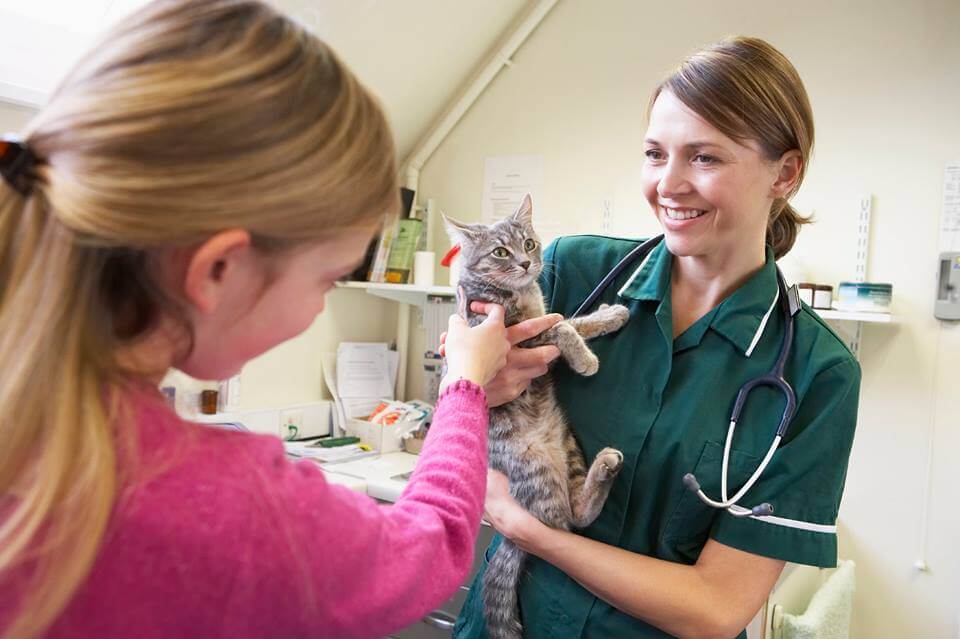Check out the Michigan Humane Society blog on Mondays to see common veterinary questions answered. If you have an immediate medical concern with your pet, please call your veterinarian! If you have a non-urgent question you would like answered on the blog, you can comment here or email us at mail(at)michiganhumane.org.
“I have two parakeets one male, one female. Is there a special vet I have to take them to or can you take them to any vet?”
To care for birds, special training and equipment are needed. You should look for a veterinarian who specializes in avian/exotic animal medicine. It is important to seek out an avian veterinarian before you have a health problem with your birds. Your local exotic animal rescue group may have a good recommendation. Once you find a veterinary hospital that sees birds, ask what percentage of their practice involves bird medicine, if they have separate areas within the hospital to accommodate birds to keep them away from dogs and cats, and what special equipment they have to care for their avian patients. It may be a good idea to visit the practice and meet with the doctors and staff who would be caring for your birds.
“What diet is appropriate for my 1-year-old adult rabbit?”
A variety of grass hays should make up the majority of the diet of a healthy adult rabbit. Grass hays include timothy, oat hay and orchard grass. Make sure the hay smells fresh, is free of mold and keep it available to your rabbit at all times. Avoid alfalfa hay in adult rabbits. It is a legume hay and is too high in calories and protein for an adult rabbit.
Fresh leafy greens should be offered daily. Good choices include romaine, endive, cilantro and dandelion greens. Fresh fruits are fine to give in limited quantities. Apples, bananas, and berries can be used as treats.
Pellets should make up a small part of the diet of a healthy adult rabbit. While alfalfa based pellets are fine for young, growing bunnies, a timothy hay based pellet should be offered to adults and limited to about ¼ cup per 5 lb bunny per day. Avoid yogurt drops and pellets that contain “extras” such as oatmeal, seeds and other treat type foods. These foods can lead to stomach upset. Keep fresh water available at all times.
For more information about all things bunny go to The House Rabbit Society website at http://rabbit.org.


My rescue cat is a very picky eater. I have tried several types of dry and wet food and he doesn’t seem to really like anything. I am worried he is not getting the proper nutrition because he is barely eating anything. He walks up to the food; sniffs and walks away. Wen he smells people food he tries to get at it so that tells me something about his history. I would rather not give that to him. He is fully vetted and (very healthy.) At the shelter he was fed what ever was on hand so I am at a loss and frustrated here. I have owned and fostered cats before and never seen such a picky boy. Thanks for any suggestions.